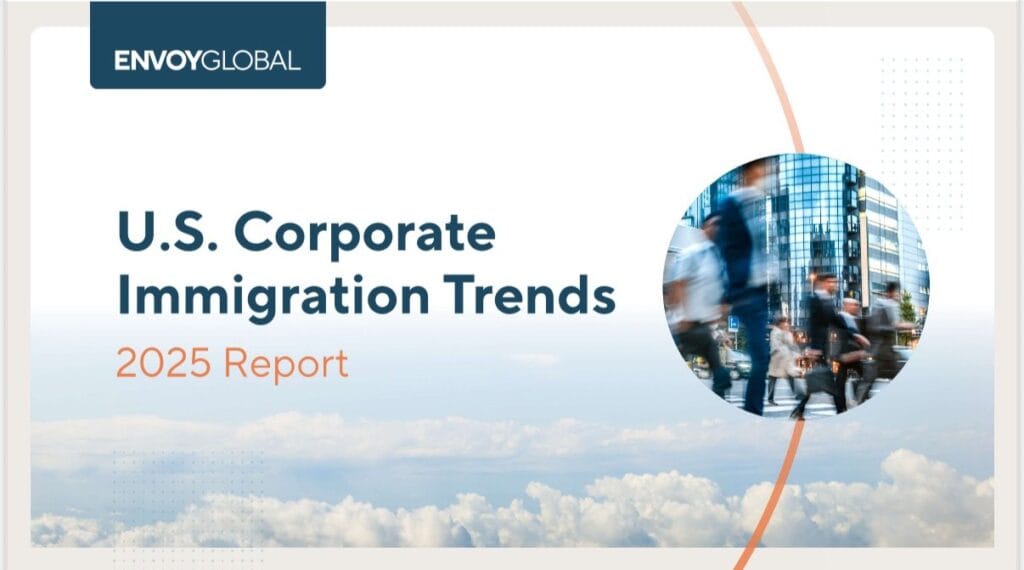Global immigration news round-up
This week, the Global Immigration team at Smith Stone Walters would like to highlight the following recent updates from Canada, Finland, Ireland, New Zealand, Turkey and the United States.

Canada: Temporary measures to support family reunification of indigenous people
On 21 October 2024, Employment and Social Development Canada (ESDC) announced that, effective 8 November 2024, the starting hourly wage for workers coming into Canada through the high-wage stream will be increased to 20% higher than its current level, which is the median wage in the applicable province or territory of work. This represents an increase to the existing threshold of between CAD 5 and CAD 8 per hour, depending on the province or territory of work.
As a result, a greater number of jobs are expected to be subject to the stricter rules of the low-wage stream, including additional employer requirements related to housing, transportation and recruitment of workers already in Canada.
ESDC also announced that, starting on 28 October 2024, employers will no longer be able to use attestations from professional accountants or lawyers to prove their business legitimacy. He added that the Temporary Foreign Worker (TFW) Program will further build on existing information sharing agreements with provincial and territorial partners, as well as existing employer registries, to enhance data sharing. These measures will help to ensure that only genuine and legitimate job offers are approved, helping prevent misuse of the program and ensuring stronger worker protection.
Background:
The low-wage stream and high-wage stream are two components of the TFW Program, differentiated by the wage level offered. There are key differences between the streams:
The low-wage stream is for jobs where the wage offered is below the provincial or territorial median hourly wage plus 20%. Under this stream:
- employers must provide supports for workers that include return transportation to their country of origin and ensuring or providing suitable accommodation;
- employers must conduct at least two additional methods of recruitment that are consistent with the occupation (targets an audience that has the appropriate education, professional experience and or skill level required for the occupation);
- employers are limited to a temporary foreign worker complement of 10% of their workforce at any worksite (up to 20% for certain high-demand sectors); and
- the TFW Program will not process LMIA applications for positions in Census Metropolitan Areas (CMA) where the unemployment rate is 6% or higher.
The high-wage stream is for jobs where the wage offered is above the provincial or territorial median hourly wage plus 20%. Under this stream:
- there is currently no limit on the number of workers an employer can hire; and
- CMA unemployment rates are not taken into consideration in LMIA application assessments.
The changes announced today are forecasted to result in 34,000 positions moving from the high-wage stream to the more stringent rules of the low-wage stream. This shift could result in as many as 20,000 fewer positions being approved through the TFW Program when combined with other policies in effect as of 26 September 2024, including the following:
- the Government of Canada no longer processes LMIAs in the low-wage stream in CMAs with an unemployment rate of 6% or higher (with some exceptions for high-demand sectors); and
- employers may hire no more than 10% of their total workforce through the TFW Program (with some exceptions for high-demand sectors).
Finland: Updated online form for new employee announcements
Effective 31 October 2024, the employee announcement form in the Enter Finland for Employers online service will be updated. From that date, there will be a new and simplified employee announcement form, making it quicker and easier for employers to submit the announcement. Employers must submit an employee announcement when employing a person from outside the EU/EEA countries.
Employee announcements can be submitted using the online service Enter Finland for Employers. Due to the update, there will be a service break on 30 October 2024 between 17h00–23h00 approximately. During the service break, announcements cannot be submitted.
Once submitted, employee announcements are usually stored on the employer’s Enter Finland for Employers account for 30 days. Due to the update, announcements submitted on 30 October 2024 or earlier will disappear from the account.
- Employers who wish to see the announcements that they have submitted within the last 30 days must save them before the service break.
- If there are unsubmitted drafts of announcements on an account on 30 October 2024, they will disappear when the service break begins.
- Announcements submitted on 31 October 2024 or thereafter will remain on the account as usual for 30 days.
Private individuals who are employers but do not have a Business ID cannot use Enter Finland for Employers to submit their employee announcement. They do not need to submit an employee announcement if their employee is only now applying for a residence permit and they have already added or will add the terms of employment to the employee’s application.
Work permit services of TE (employment and economic development) Offices to be transferred to Finnish Immigration Service on 1 January 2025:
As of 1 January 2025, the Finnish Immigration Service will be responsible for all residence permit matters for employed persons. The changes are part of the overall reform of employment and economic development services in Finland.
Ireland: Launch of new online immigration self-service portal
On 24 October 2024, the Department of Justice announced the launch of the Digital Contact Centre (DCC) for immigration.
The DCC is a self-service portal that will enable immigration customers to book and amend first-time registration appointments, replacing the need for them to call a contact centre to arrange such an appointment.
The new system will also allow people to check the status of their applications, and over time will allow people to raise queries in relation to visas, registration, domestic residence permissions, travel documents, EU treaty rights and Citizenship applications.
Almost half of queries received by Immigration Service Delivery (ISD) in the Department are customers seeking updates on their applications. This new system empowers customers to receive updates and information in a more efficient manner and will allow staff within ISD to devote more time to processing applications.
New Zealand: New visa application centre in Samoa
On 21 October 2024, Immigration New Zealand (INZ) announced that a new Visa Application Centre (VAC) will open in Apia, Samoa on 4 November 2024 in partnership with VFS Global.
The new VAC will enhance the service offerings for INZ’s Samoan clients, featuring an application lodgement service available from Monday to Friday, between 09:00 and 16:00. The existing INZ Apia office counter, which currently operates for just one hour each day, will close on 1 November 2024.
From 4 November 2024, customers wanting to submit paper visa applications in person can do this through the Apia VAC. A VAC service fee of WST 90 per application will apply.
There will be a transitional period for Recognised Seasonal Employer (RSE) applications to the VAC. INZ Apia will continue to accept RSE visa applications for 2 weeks from 4 to 18 November 2024.
From 18 November 2024, all RSE visa applications must be submitted through the Apia VAC, which will charge a service fee of WST 45 per application.
New Zealand: More places for Vietnam Working Holiday Scheme
The Vietnam Working Holiday Scheme reopened on 24 October 2024 and the number of places available under the scheme has increased from 100 to 200.
New Zealand has agreements with 45 countries, including Vietnam, that allow young people aged between 18 and 30 (or up to 35 in some cases) the opportunity to travel around New Zealand and work temporarily while they are here.
Work is under way to have formal agreements in place to allow a reciprocal increase for New Zealand holidaymakers wanting to travel to Vietnam.
New Zealand: Open work rights for partners of migrant workers
On 23 October 2024, Immigration New Zealand (INZ) announced that, from 2 December 2024, open work rights will be available to:
- all partners of Accredited Employer Work Visa (AEWV) working in an Australian and New Zealand Standard Classification of Occupations (ANZSCO) Level 1-3 role and earning at least NZD 25.29 an hour (80 percent of the standard median wage)
- partners of AEWV holders earning at least NZD 25.29 an hour if they were already supporting a partner for a work visa on 26 June 2024
- all partners of Essential Skills work visa holders earning at least NZD 25.29 an hour.
Furthermore, open work rights will be available to partners of AEWV holders working in an ANZSCO Level 4-5 role:
- earning at least NZD 47.41 an hour (150 percent of the standard median wage), or
- earning at least NZD 31.61 an hour in a role on the Green List and meeting the Green List requirements for that role, or
- earning at least NZD 25.29 an hour (80 percent of the standard median wage) and meeting the requirements of a role in the Transport or Care Sector Agreements (or the wage specified in the sector agreement, whichever is higher).
ANZSCO grades occupations according to skill level. ANZSCO skill levels range from 1 to 5, with 1 being the most skilled and 5 being less skilled.
Current holders of partner work visas with specific employment conditions, will be able to apply to vary their visa conditions to switch to open work rights, if their partner meets any of the above situations.
Those who meet the above criteria will be able to apply for a variation of conditions or a new work visa from 2 December 2024.
Turkey: Work permit exemption extended to three years for certain foreign nationals
On 15 October 2024, the government published amendments to the Regulation on the Implementation of the International Labour Force Law.
The work permit exemption previously granted to foreign nationals contributing to economic, socio-cultural, technological and educational fields for up to six months has been extended to three years.
Moreover, application procedures have been simplified for work permit exemptions for holders of humanitarian residence permits or temporary protection status, now requiring only the submission of an information form.
Another work permit exemption has been extended to foreign journalists holding a permanent press card and with approval from the Presidential Directorate of Communications.
Finally, it is no longer necessary to apply for a work permit exemption within 30 days of arrival in Türkiye. Instead, applications can now be submitted at any time during a foreign national’s legal stay in the country.
United States: USCIS Updates Policy Manual Guidance for T Visa
United States Citizenship and Immigration Services (USCIS) has updated its guidance in the USCIS Policy Manual to align with the Classification for Victims of Severe Forms of Trafficking in Persons; Eligibility for “T” Nonimmigrant Status Final Rule. This rule was published in the Federal Register on 30 April 2024.
T nonimmigrant status, also called a T visa, allows certain victims of human trafficking to stay in the United States for an initial period of up to four years. The final rule strengthens the integrity of the T visa program and ensures eligible victims of human trafficking can get protections and stabilizing benefits in a timely way.
USCIS’ updated policy guidance (PDF, 232.24 KB) is effective immediately and applies generally to applications pending or filed on or after 28 August 2024, except for the bona fide determination process, which generally only applies to applications filed on or after 28 August 2024. However, regarding pending applications, no provision of the rule applies to an applicant who filed before 28 August 2024, if it would make an applicant who was eligible under the previous regulations, ineligible.
Specifically, this policy guidance:
- Emphasizes and expands on the “any credible evidence” provision and its applicability to applications for T nonimmigrant status;
- Emphasizes a victim-centered and trauma-informed approach to adjudicating applications for T nonimmigrant status;
- Explains the bona fide determination process for applicants for T nonimmigrant status;
- Provides additional exceptions to the general rule that departures from the United States after trafficking render an applicant unable to establish physical presence on account of their trafficking;
- Revises the definition of “law enforcement agency”;
- Clarifies the requirement that an applicant must establish that a perpetrator engaged in a specific prohibited action “for the purpose of” inducing a commercial sex act or subjecting the applicant to involuntary servitude, peonage, debt bondage, or slavery; and
- Explains that an applicant generally must report their trafficking to law enforcement authorities with jurisdiction to investigate their trafficking to satisfy the reporting requirement.
In addition, when an individual whose application is deemed bona fide files Form I-765, Application for Employment Authorization, under category (c)(40), USCIS will consider whether to grant them deferred action and an Employment Authorization Document while the application for T nonimmigrant status is adjudicated. USCIS recommends that applicants submit Form I-765 with their Form I-914, Application for T Nonimmigrant Status. Applicants for T nonimmigrant status do not need to pay a fee to file Form I-765.
Expert advice on global immigration
If you need support with any aspect of global immigration, Smith Stone Walters is here to help.
To speak to a member of our global immigration team, please contact us today.















